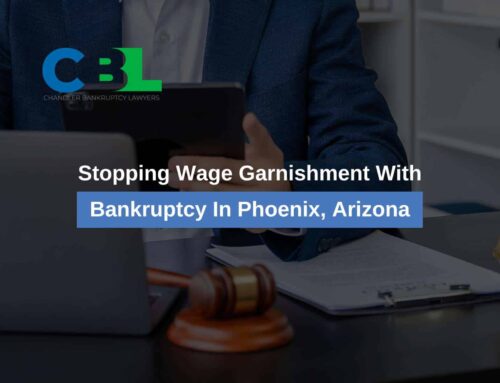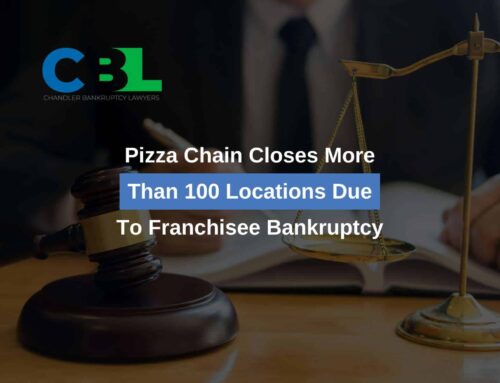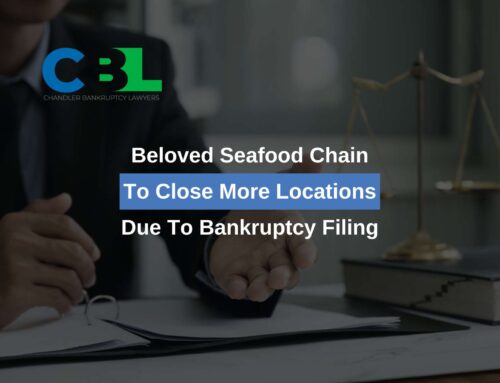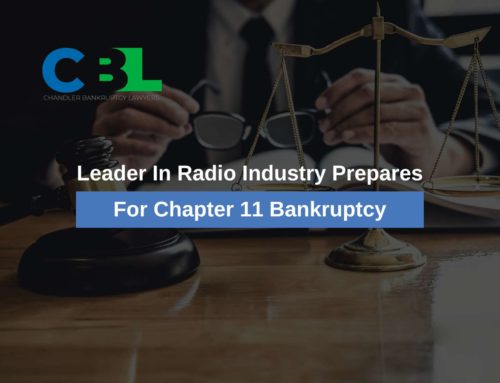If you’ve been looking to stock up on home gym equipment, now might be a good time: longtime fitness company BowFlex has filed for bankruptcy as of March 5, 2024. The case is a Chapter 11 bankruptcy filing, so it doesn’t mean an immediate shutdown. Many of their products can currently be purchased at a discount. The filing might surprise some, with home gyms growing in popularity during the pandemic. However, BowFlex has been facing increasing competition from other fitness brands like Peloton and weight-loss drugs like Ozempic. Many of BowFlex’s fitness competitors are also struggling, although weight-loss drug companies are thriving. Fitness businesses in Arizona may see a similar struggle with debts. If you are considering filing for bankruptcy in the greater Phoenix area, contact our firm for your free consultation at 480-780-2211.
BowFlex’s Bankruptcy Filing
BowFlex is perhaps best known for creating a home fitness device that replaces up to 70 pieces of equipment from a traditional gym. Its advertisements dominated cable television in the 1990s. But not as many people are shopping for home gym equipment like weights, treadmills, and stationary bikes as there were during COVID-19. It laid off 15% of its employees in 2023 and currently has about 330 employees. In its bankruptcy petition filed in the state of New Jersey, BowFlex stated that it had $126 million in liabilities and $140 million in assets.
While it may seem like the pandemic would have helped BowFlex’s profits, it also encouraged a plethora of competitors to join the market. It also caused existing companies to expand into specific populations served by BowFlex. BowFlex also cited rising interest rates as a driving factor behind its bankruptcy filing.
BowFlex’s bankruptcy plan includes finding a buyer, but it has been seeking one since 2021. It currently has an offer from Johnson Health Tech for $37.5 million. If another company is interested in acquiring BowFlex, they will have to outbid Johnson Health Tech at the bankruptcy auction. In the meantime, BowFlex has taken out a bankruptcy loan for $9 million.
Other Fitness Company Bankruptcy Filings
BowFlex isn’t the first fitness company to declare bankruptcy, and it likely won’t be the last. Several fitness companies have declared bankruptcy in the past, with different results. They include:
- 24-Hour Fitness: Pandemic quarantine measures proved to be financial devastation for this gym chain. It declared bankruptcy and closed 100 locations in 2020. That left it with 300 remaining locations. It secured $250 million in funding to help it reopen locations as quarantine measures lifted.
- Gold’s Gym: Gold’s Gym was another inevitable victim of the COVID-19 pandemic. This chain had approximately 700 locations at the beginning of the pandemic but was forced to shut down about 30 of them when it filed for bankruptcy. However, because the filing came before things were too bleak, the company was able to re-tool and maintain its presence as a leader in the world of bodybuilding.
- YogaWorks: While this California-based yoga company’s troubles originated from the pandemic, it didn’t file for bankruptcy until 2021. It had 60 locations at the time it filed for bankruptcy but was forced to shut down all of them. However, the business as a whole didn’t entirely shut down- it continued to live-stream yoga classes after closing its physical locations. Virtual yoga teacher training is another source of revenue for the company.
- Modell’s Sporting Goods: This sporting goods chain filed for bankruptcy and closed all of its stores due to the pandemic. The company had been in business since 1889 but had to close doors at 141 locations after decreased profits during COVID-19. It held clearance sales to offload inventory before it shut down for good.
Chapter 7 Bankruptcy for Fitness Business Owners
Most of the cases you will see in the news, especially when it comes to fitness companies, are Chapter 11 bankruptcy filings. Chapter 11 is different from Chapter 7 bankruptcy, the most popular form of consumer bankruptcy, in many ways. Chapter 11 bankruptcy gives business debtors the option to shut down like they would have to in a Chapter 7 filing, or to continue operating. The business will need to complete certain requirements to re-emerge from bankruptcy and remain in business. But filing for Chapter 7 bankruptcy doesn’t prevent a business owner from opening a new enterprise in the future.
Some types of businesses are fairly simple to reopen after a Chapter 7 bankruptcy discharge. For example, an independent personal trainer who uses space in gyms owned by other people can probably file a Chapter 7 bankruptcy without losing substantial assets. That personal trainer could also open a new business under a similar name- for example, Mary’s Fitness Training could be closed through a Chapter 7 bankruptcy, but she could open a new business after discharge called Personal Training by Mary. This bankruptcy strategy won’t be effective for all types of fitness company owners. If a debtor were to own their small gym, much of their equipment might not be covered by Arizona’s bankruptcy exemptions. This would make reopening under a different name much more expensive for the business owner. For more information about declaring Chapter 7 bankruptcy as a small business owner in Phoenix, call 480-780-2211.
Bankruptcy Exemptions to Apply to Fitness Equipment
Whether you’re a fitness entrepreneur or merely an enthusiast, you might have your supply of home fitness equipment. Some fitness equipment is expensive, while some is more reasonably priced but the expenses can add up over time. You should apply bankruptcy exemptions to every item you own when you file for bankruptcy in Phoenix, Arizona. This includes your fitness equipment. Some of the exemptions you can consider using include:
- Household goods and furnishings: This exemption covers up to $15,000 in resale value. However, it’s important to make sure that you don’t spend too much of your household goods and furnishings exemption on your fitness equipment. You probably also have furniture, appliances, etc., that need protection from the bankruptcy trustee.
- Wearing apparel: Up to $500 of clothing is protected in an Arizona bankruptcy filing. If you have an extensive collection of Lululemons or another pricey fitness brand, it might not be protected from bankruptcy.
- One typewriter, one computer, one bicycle, one sewing machine, a family bible, or a burial plot: This exemption covers $2,000 for one of the assets described in Arizona. If you have a bike worth $2,000 or less, you can protect it with this exemption.
- Tools of the trade: $5,000 of a debtor’s “tools of the trade” are protected in an Arizona bankruptcy. If the debtor works in the fitness industry, their fitness equipment is probably considered a tool of the trade.
Set Up Your Free Consultation with Our Phoenix Bankruptcy Team
Filing for bankruptcy is an easier and simpler process when you have a skilled bankruptcy lawyer in your corner. At Chandler Bankruptcy Lawyer, we can clarify every step of the process so your bankruptcy is as effective as possible. This begins with your risk-free and confidential consultation by phone. If you qualify, you can file your case for as little as $0 down! To get started today, contact us through our online form or schedule your free consultation by calling 480-780-2211.

CHANDLER BANKRUPTCY LAWYERS
1731 West Baseline Road #101
Mesa, Arizona 85202
Phone:480-780-2211
Email: [email protected]
Website: www.chandlerbankruptcyattorney.co
Additional assistance is available from our Arizona Bankruptcy Experts:
Gilbert Bankruptcy Attorneys
Tucson Bankruptcy Lawyers
Glendale Bankruptcy Lawyer
Chandler Bankruptcy Lawyer
Tempe Bankruptcy Lawyers
Arizona Bankruptcy Attorneys






